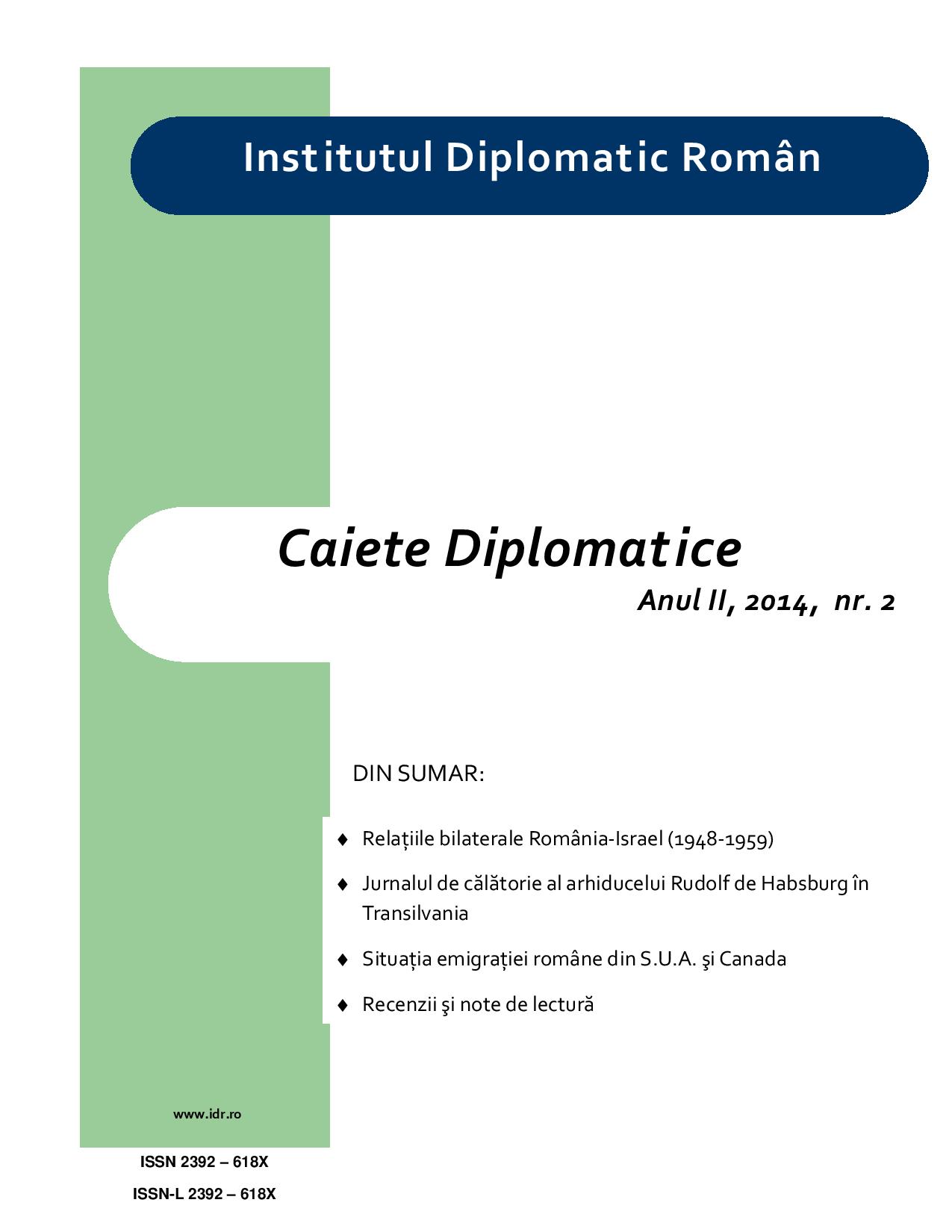Participarea României la consultările preliminare pentru C.S.C.E. şi M.B.F.R. (noiembrie 1972–iunie 1973)
Romania's Participation in the Preliminary Consultations for C.S.C.E. and M.B.F.R. (November 1972-June 1973)
Author(s): Iulian ToaderSubject(s): History, Diplomatic history, Recent History (1900 till today), Post-War period (1950 - 1989)
Published by: Institutul Diplomatic Român
Keywords: antihegemony;CSCE;Cold War;détente;European security;MBFR;Romanian foreign policy
Summary/Abstract: This article examines Romania’s participation at the preparatory talks for C.S.C.E. and M.B.F.R. in the context of East-West détente. Drawing from declassified documents available at the Archives of the Ministry of Foreign Affairs and the Romanian National Archives, the article investigates the objectives of Romanian diplomacy, its sources of conduct during the negotiations, and the results it has obtained in accordance with its own views on the European security. The multilateral framework of C.S.C.E. and M.B.F.R. represented for the Romanian diplomacy both an opportunity and an instrument to assert itself on the international arena. Consequently, the officials from Bucharest elaborated an ambitious agenda for the negotiations, reflecting their antihegemonic vision on international politics. They perceived the bipolar hegemony of the Cold War as the main threat for Romania’s security and sovereignty. To hamper the Great Powers’ domination, the leadership in Bucharest promoted an idealistic vision of the European security in which all states should cooperate on an equal basis, regardless of their socio-political system. To overcome the political, military, and economic division of the European continent, a new system of relations between states had to be created in order to assure the peaceful coexistence in Europe and to remove the spheres of influence by simultaneously dissolving the military alliances. Nevertheless, Romania’s objective together with the Soviet and the Western ones were irreconcilable. While the Soviets have promoted détente to legitimize their sphere of influence in Eastern Europe, for the Western countries neither the peaceful coexistence, nor the dissolution of the N.A.T.O. represented real options for the European security. In the West, the détente was a simple stage of the Cold War, not the final aim. The dispute on freer movement and human contacts at Helsinki proved that the Cold War remained primarily an ideological struggle. Thus, the Cold War could not be won through a modus vivendi with the communist system of values. This article concludes by arguing that the counterhegemonic vision of the Romanian communists has imposed serious limitations on Romania’s conduct during the preliminary negotiations for C.S.C.E. and M.B.F.R. The Communist regime defined Romania’s national interest not in connection with the aspirations of its own people, but by taking into account the consequences of the bipolar hegemony for Romania’s sovereignty, and consequently for the survival of the regime itself. Romanian diplomacy considered that its participation represented a real success by achieving a new pattern of negotiation in multilateral diplomacy. However, this view reflects more how the diplomats perceived their role and discards other factors or the perceptions of the other participants.
Journal: Caiete Diplomatice
- Issue Year: II/2014
- Issue No: 2
- Page Range: 44-85
- Page Count: 42
- Language: Romanian

